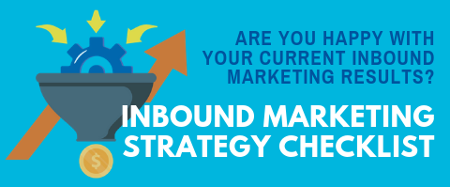Building Your Inbound Marketing Strategy
An effective inbound marketing plan is essential for businesses seeking sustainable growth and increased brand visibility. Unlike traditional...


Traditional marketing approaches, characterized by isolated and uncoordinated efforts, often fall short in this highly competitive environment where businesses strive to stand out.
Enter the campaign-driven marketing strategy: a cohesive, focused, and agile approach that can significantly enhance your marketing effectiveness and drive better business results by aligning all marketing efforts toward a common goal.
This strategic approach involves creating targeted campaigns that resonate with your audience, leveraging data analytics to optimize performance, and adapting swiftly to market changes. Embracing a campaign-driven marketing strategy can help your business stay ahead of the curve and establish a stronger connection with your customers, leading to improved brand awareness and increased customer engagement.
A campaign-driven marketing strategy is a comprehensive approach that entails orchestrating integrated marketing endeavors centered on a unifying theme, objective, or message. Adopting this comprehensive approach, all facets of marketing, including:
Social media engagement
Paid advertising initiatives
Are all strategically coordinated to work synergistically toward accomplishing a shared goal.
This strategic alignment reinforces the core message and fosters a seamless and cohesive experience for your target audience, elevating brand recognition and recall. The consistency achieved through this concerted effort helps build a lasting impression and forge stronger connections with your customers, leading to increased brand loyalty and engagement.
Campaign-driven marketing offers a structured approach to effectively guiding your marketing initiatives. You can uphold a precise direction throughout the campaign lifecycle by meticulously outlining well-defined goals, identifying target audiences, refining key messages, and establishing success metrics from the outset.
This strategic clarity not only aids in averting dispersed efforts but guarantees that each deliberate action aligns cohesively with the overarching campaign objectives, fostering a more targeted and impactful marketing strategy.
Resources in any organization are finite, making effective utilization a critical component for success. Adopting a campaign-driven approach not only facilitates a more strategic allocation of resources, including time, budget, and personnel but also enables a more targeted and focused utilization of these valuable assets.
Concentrating resources on well-defined campaigns enhances the impact and ROI of your marketing investments and cultivates a more precise understanding of what works best. This approach empowers the identification and scaling of successful tactics while concurrently streamlining efforts on less effective activities, ultimately leading to a more efficient and fruitful operational framework.
Marketing campaigns, by nature, are inherently time-bound and goal-oriented strategic endeavors. This well-defined structure not only fosters agility but also enhances the capability of teams to promptly respond to market fluctuations and emerging trends, ensuring they remain at the forefront of industry developments.
Real-time monitoring of campaign performance provides invaluable insights, empowering teams to make swift adjustments and strategic optimizations as needed.
Campaign-driven marketing strategies are inherently data-centric. By meticulously outlining specific goals and key performance indicators (KPIs) for every campaign, you establish a robust framework for tracking and measuring results with precision.
Embracing this data-driven methodology not only allows for effective result evaluation but also offers profound insights into the efficacy of different strategies. This iterative process of analysis and refinement facilitates continuous enhancement, empowering marketers to make well-informed decisions that pave the way for successful future campaigns.
Well-executed marketing campaigns are meticulously crafted to captivate specific audience segments through customized messages that deeply connect with their unique needs and preferences. This personalized and strategic approach boosts engagement and significantly elevates conversion rates.
Consistently providing pertinent and timely content that addresses the evolving demands of your audience can effectively navigate prospects through the intricate stages of the buyer's journey, optimizing sales performance and fostering enduring customer loyalty.
A campaign-driven strategy is crucial in fostering enhanced collaboration and coordination among diverse teams within your organization. By aligning the efforts of the marketing, sales, product development, and customer service teams toward shared campaign objectives, a seamless integration of skills and expertise is achieved.
This cross-functional alignment ensures that all team members are synchronized in their efforts and leads to a unified and cohesive approach that significantly magnifies the overall impact of the organization's initiatives.
Consistent messaging across all marketing channels is pivotal in strengthening your brand identity.
By adopting a campaign-driven approach, you not only ensure that your brand voice, visuals, and values are consistently communicated but also create a cohesive brand narrative. This unified storytelling helps in building a stronger, more recognizable brand presence that resonates with your audience on a deeper level.
As this consistency permeates through your marketing efforts over time, it fosters profound emotional connections with your audience, cultivating lasting brand loyalty and advocacy.
Implementing a campaign-driven marketing strategy can truly revolutionize the way you approach marketing endeavors. By embracing this strategic shift towards a more focused, integrated, and data-informed approach, you not only enhance your marketing effectiveness but also drive superior business outcomes.
This proactive stance is especially crucial in today's fiercely competitive marketplace, where staying ahead is paramount for sustained success.
Begin by meticulously planning your next marketing campaign today to witness firsthand the transformative impact of a well-thought-out strategy. Remember, success in this realm is intricately linked to thorough planning, consistent monitoring, and a readiness to adapt and innovate.
Embrace the campaign-driven methodology wholeheartedly to unlock the untapped potential within your marketing initiatives and propel your brand towards greater heights of success.
 *Editor's Note: This blog has been updated since its original post date.
*Editor's Note: This blog has been updated since its original post date.
An effective inbound marketing plan is essential for businesses seeking sustainable growth and increased brand visibility. Unlike traditional...
![Don't Overlook This Resource to Help Drive More Revenue from Marketing Campaigns [VIDEO]](https://leadg2.thecenterforsalesstrategy.com/hubfs/Screen%20Shot%202019-07-18%20at%202.32.22%20PM.png)
One of the biggest resources that marketing teams have is access to their sales team. That's right! The sales team is a key resource for successful...

Understanding your audience is a top priority in B2B marketing. The foundation of successful inbound marketing lies in comprehending your target...